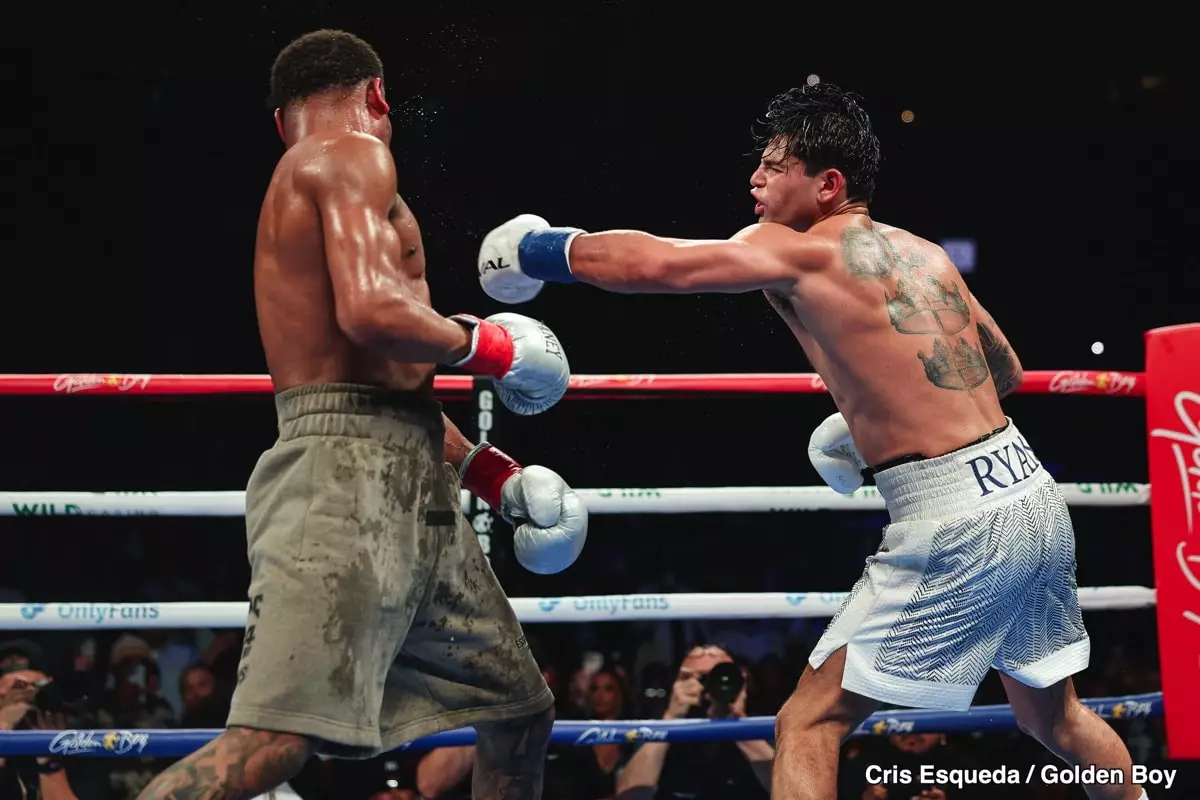In a sport where the stakes can mean the difference between fame and obscurity, the recent lawsuit filed by Devin Haney against Ryan Garcia offers a rare glimpse into the intricate interplay between athletes’ conduct, legal frameworks, and the overarching culture of boxing. This case, stemming from Garcia’s positive test for the prohibited substance Ostarine, raises questions not merely about individual accountability but about broader systemic issues in how professional boxing addresses performance-enhancing drugs (PEDs) and the ramifications of their usage. Eddie Hearn, a prominent promoter, expressed that Haney’s legal move could serve as a critical turning point, potentially discouraging fighters from seeking unfair advantages through PEDs. However, this potential deterrent comes with risks and complications that merit a deeper examination.
Haney’s lawsuit is hinged upon claims of battery, fraud, and unjust enrichment, presenting a multi-faceted approach to his grievance. By opting for legal action, Haney is not only addressing the direct impact of Garcia’s doping infraction but is also challenging the general notion of accountability within the sport. Hearn believes that even if Haney loses the lawsuit, the mere existence of such a claim sends shockwaves through the boxing community, indicating that the financial repercussions—potentially amounting to tens of millions—could deter other boxers from resorting to illicit means to pursue victory. Garcia’s past suspension illustrates that while penalties exist, they often fail to address the root issue: the attractiveness of gaining an unfair advantage for significant financial rewards.
However, one must also examine the implications for Haney himself. Not only does he face a challenging road ahead following his loss to Garcia, but initiating a lawsuit could also create apprehensions among potential opponents. Fighters may be reluctant to enter the ring with him out of fear of subsequent legal ramifications following a loss. This could ultimately lead to isolation within the sport for Haney, making it a double-edged sword.
Hearn’s assertion that the lawsuit signifies an important moment for boxing raises an intriguing point about the culture surrounding PED usage in sports. While the legal avenue may establish a precedent, the core issue remains: the effectiveness of current regulations in eradicating PED use. Athletes often weigh the risks against potential rewards, leading to a cycle where the allure of quick success outweighs the threat of legal action or suspension. If the lawsuit fails to effectively deter usage among fighters, the broader implications might not yield the desired changes in behavior.
Furthermore, if the perspective on doping practices does not evolve, fighters may still opt for PEDs as a means of differentiation in what can be an intensely competitive environment. The financial gains tied to performance, particularly through high-stakes matchups, complicate the rhetoric surrounding integrity in the sport. For every fighter like Haney advocating for fairness, there exist others who view doping as a necessary gamble for survival in the industry.
One significant concern that Hearn neglected to address revolves around another form of advantage-seeking: weight manipulation. In boxing, the phenomenon of fighters drastically altering their weight to compete in lower classes poses dangerous implications. Fighters often dehydrate themselves to fit into weight categories well below their natural size, only to rehydrate significantly before the fight. This practice not only skews the fairness of competition but also introduces severe health risks, including dehydration-related injuries and complications.
The current regulations partially address PED concerns but inadequately confront the equally perilous practice of weight manipulation. Implementing same-day weigh-ins or more stringent weight checks could enhance fighter safety and equity among participants. Acknowledging these challenges would signal a comprehensive approach to leveling the playing field, thus creating a more equitable sports culture.
The lawsuit initiated by Devin Haney against Ryan Garcia may signify a critical juncture in boxing regarding regulatory awareness and the consequences of performance-enhancing practices. While it may deter some fighters from resorting to PEDs, a broader reevaluation of existing sports regulations, including those surrounding weight manipulation, is sorely needed. If authorities act decisively and holistically, the landscape of boxing may evolve into a fairer and safer space for all athletes. The time has come to confront not just the symptoms, but the underlying issues that plague the sport, ensuring that integrity and health become as paramount as the pursuit of victory.

